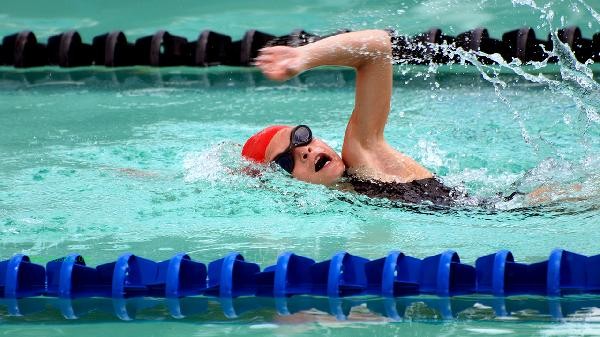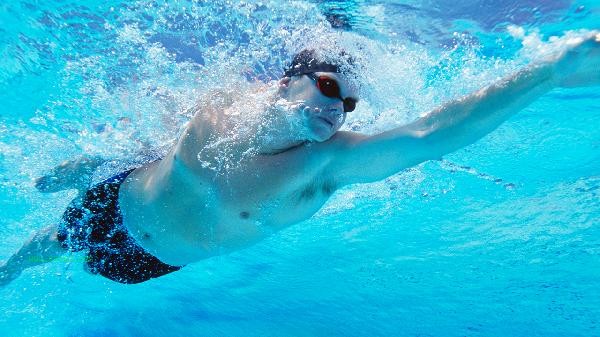The choice of swimming on an empty stomach or after a meal depends on individual physical fitness and exercise intensity. Low intensity swimming 1-2 hours after a meal is safer, and fasting is suitable for short-term low-intensity training. Swimming after meals is more suitable for most people, especially beginners or those with gastrointestinal allergies. 1-2 hours after eating, the food has completed initial digestion, blood sugar levels are stable, and can provide sustained energy support. Engaging in low-intensity swimming at this time can avoid the risk of hypoglycemia and reduce gastrointestinal discomfort. It is recommended to choose easily digestible small portion meals, such as bananas paired with whole wheat bread, which can supplement carbohydrates without increasing gastrointestinal burden. Attention should be paid to avoiding high-fat and high protein diets, as these foods have a slow digestion rate and may cause stomach bloating during swimming.

Fasting swimming is suitable for people with exercise foundation and no risk of hypoglycemia. When fasting in the morning, insulin levels are low and fat metabolism efficiency is relatively high, making it suitable for low-intensity swimming with the goal of weight loss. But it is recommended to control the duration within 30 minutes and carry quick energy supplements such as glucose tablets with you. Patients with diabetes, pregnant women or those with abnormal metabolism should avoid fasting exercise, which may induce dizziness, cold sweat and other hypoglycemic reactions. If choosing to swim on an empty stomach, it is necessary to supplement protein and carbohydrates in a timely manner after the end to help with recovery. Whether swimming on an empty stomach or after a meal, it is important to pay attention to hydration before, during, and after exercise to avoid dehydration affecting athletic performance. It is recommended to adjust the plan based on the physical condition of the day, and the first attempt to swim on an empty stomach should be accompanied by someone. Long term swimmers can find the most suitable eating schedule by recording exercise logs and comparing heart rate, fatigue, and other data under different states. Moderate supplementation of electrolyte drinks and high-quality protein after exercise can help with muscle repair and energy storage.









Comments (0)
Leave a Comment
No comments yet
Be the first to share your thoughts!